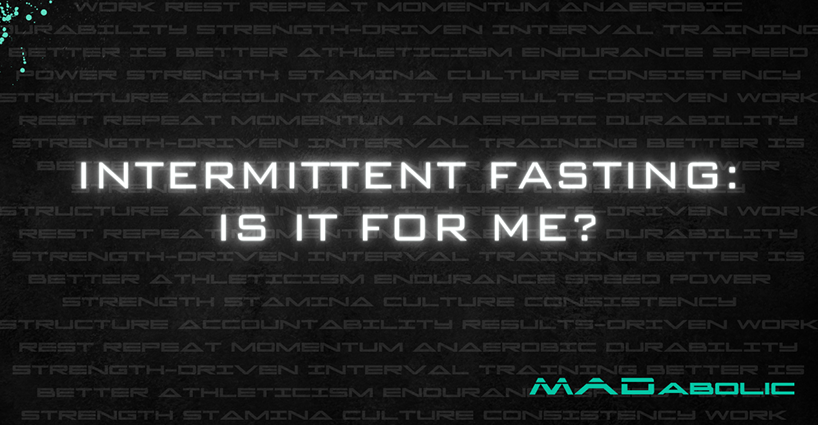In the age of Instagram, intermittent fasting (IF) trends have skyrocketed due to influencers and “health gurus” claiming IF to be the 8th wonder of the world. ‘Tis the season where you’re about to be bombarded by a whole lot of diet misinformation, so here’s the scoop on intermittent fasting.
What is intermittent fasting?
The practice of alternating between periods of eating and periods of not eating (aka fasting). Fasting periods vary depending on the particular IF protocol, but the most common split is 16 hours of fasting followed by an 8-hour feeding window.
Why would I want to intermittent fast?
While IF can certainly be effective, depending on your goals, it’s a bit over-hyped. There’s nothing magical about IF, it’s simply a method to abbreviate your feeding window, which can be helpful in adhering to your diet — specifically if you’re aiming to create an intentional caloric deficit. A shorter eating window = less time to overshoot your calorie deficit target.
Intermittent Fasting might be for you if:
You’re a dude (will dive into this later)
You’re attempting a fat loss phase and struggling to identify a method that help you stick to that deficit
Your lifestyle is sedentary
You suffer from chronic inflammation
You have sub-clinical blood sugar and/or blood pressure values
You experience issues with gut health and digestion
You’re interested in exploring potential cognitive benefits
You thrive with dietary “rules” (as opposed to suffering from higher stress levels with such strict guidelines)
Intermittent Fasting might NOT be for you if:
You’re a female (will dive into this later)
You’re in a gain phase and aiming to add muscle mass to your frame
You train/workout in the mornings
You’re prone to stress (or already under stress)
You simply enjoy eating throughout the day
You have thyroid issues
You’re diabetic
You struggle with getting adequate sleep
You have digestive issues (yes, this also appears in the “pros” list…while IF may improve digestion for some, it may cause trouble for others)
You have a history of disordered eating or a negative relationship with food (adding more restrictions to your plate is not advised here)
You enjoy being social (IF can be hard to stick to when you have a deadline for consuming calories…liquid calories included)
Intermittent fasting and gender
You no doubt noticed the very first points of the above “IF may/may not be for you” tables revolved around gender. This is a very important distinction when it comes to weighing the pros and cons of attempting IF. Men, on the whole, tend to respond to more favorably to IF than women, and it’s for one very simple reason:
The male hormonal system is relatively straightforward and simplistic. It doesn’t even come close to how complex the female system is.
This is because women are charged with more reproductive responsibility! So, when it comes to nutrition and health, what works for males cannot just simply be replicated in a slightly smaller package to accommodate females — ICYMI, women are not just small men!
When applied to women (especially women who may already be relatively lean and highly active), sensitivity to IF tends to be higher than when appled to men. The practice has been linked in irregularities in menstural cycles and fertility issues. Despite potentially desirable aesthetic outcomes, disrupting internal function is not worth it when you can achieve your body composition goals through other, less disruptive, approaches. And if you’re pregnant or breast-feeding, IF should absolutely be off the table, as your priority needs to surround consuming adequate calories to support yourself and your baby (where IF may promote under-eating, even if it’s unintentional). Additional, IF is more likely to interfere with lean mass generation in women than in men.
Naturally, there are always exceptions to the rule. A young, highly active woman may find that she loves and responds well to IF. If it’s somthing you’re interested in exploring, we’d strongly recommend shorter fasting periods (consider a 12/12 or 14/10 fasting to feeding period) as well as a lower frequency of days you engage in IF (meaning: don’t do it every single day).
Looking for more nutrition advice? Check out our free MADabolic Nutrition Blueprint.



